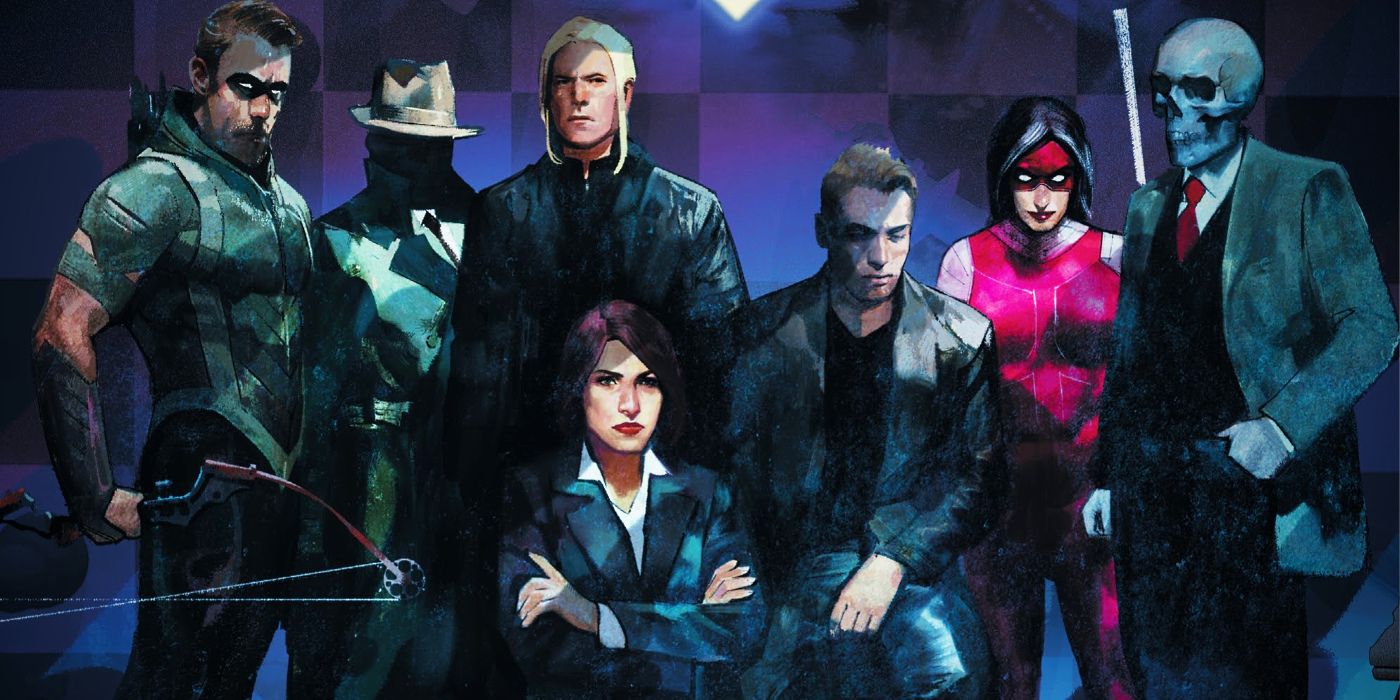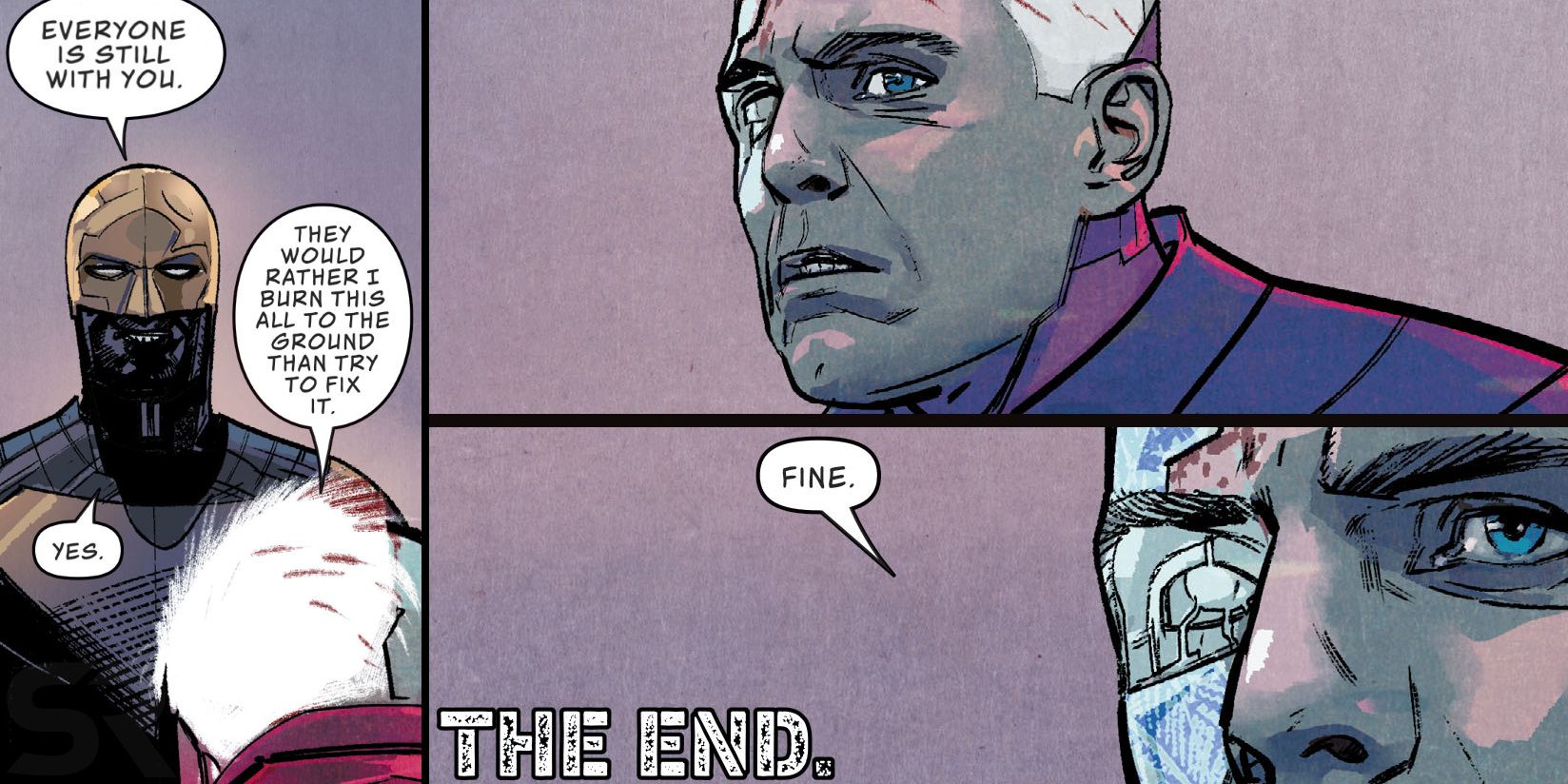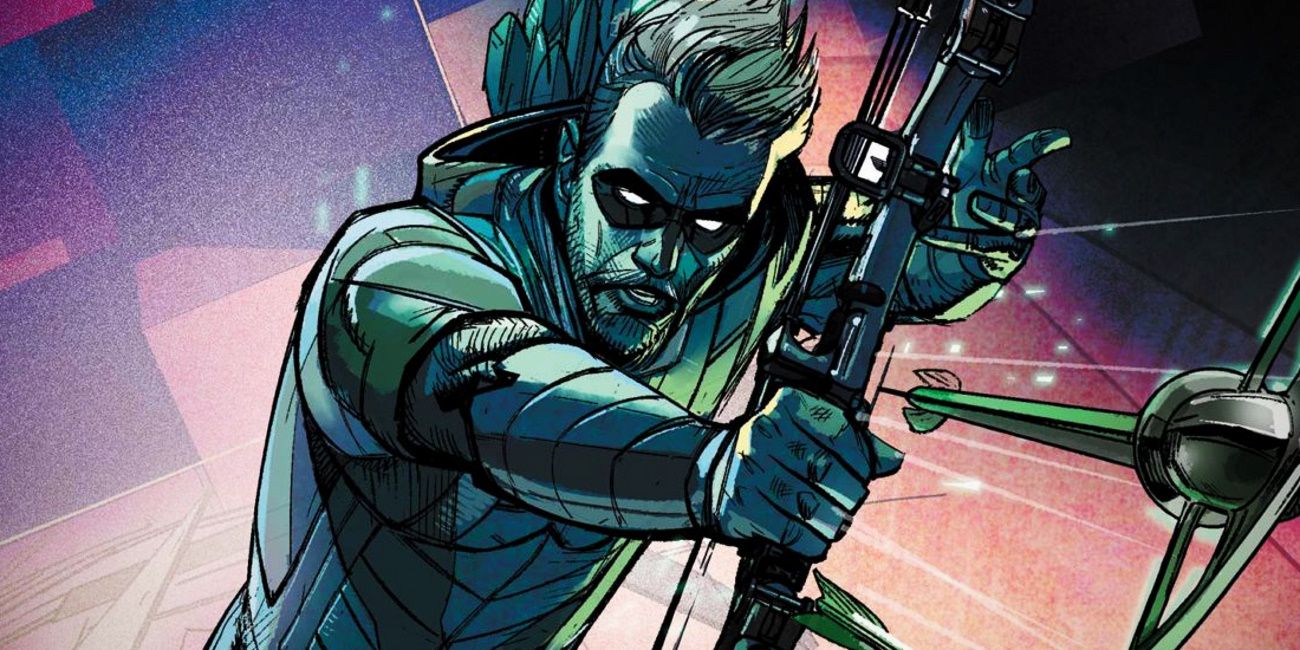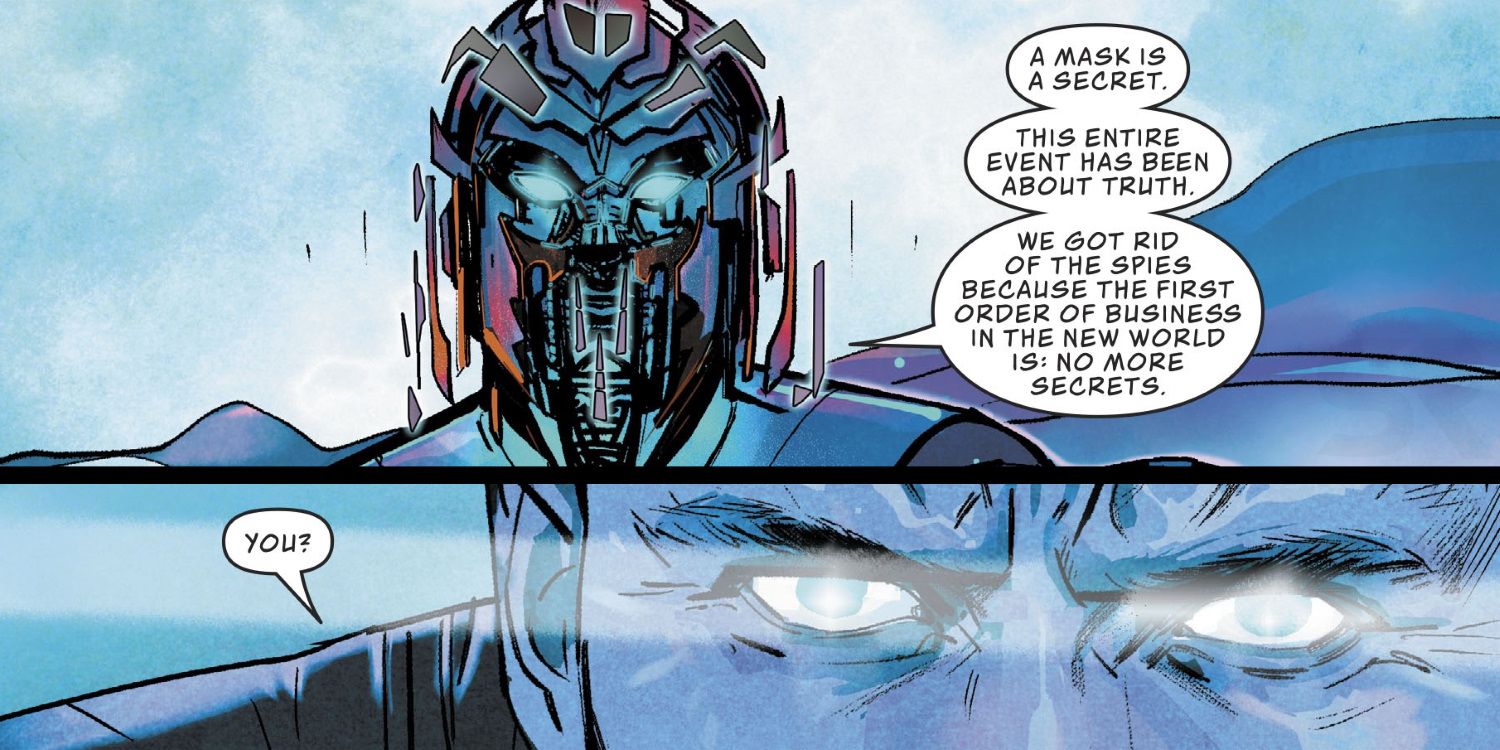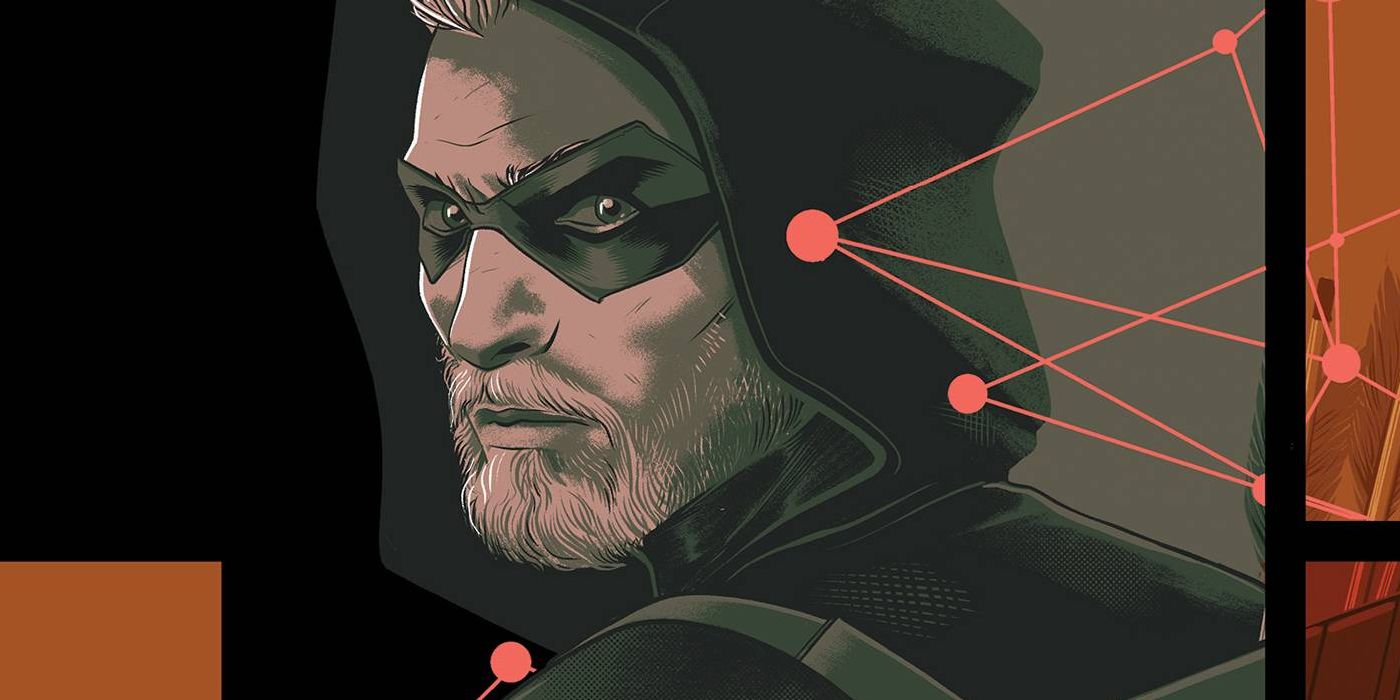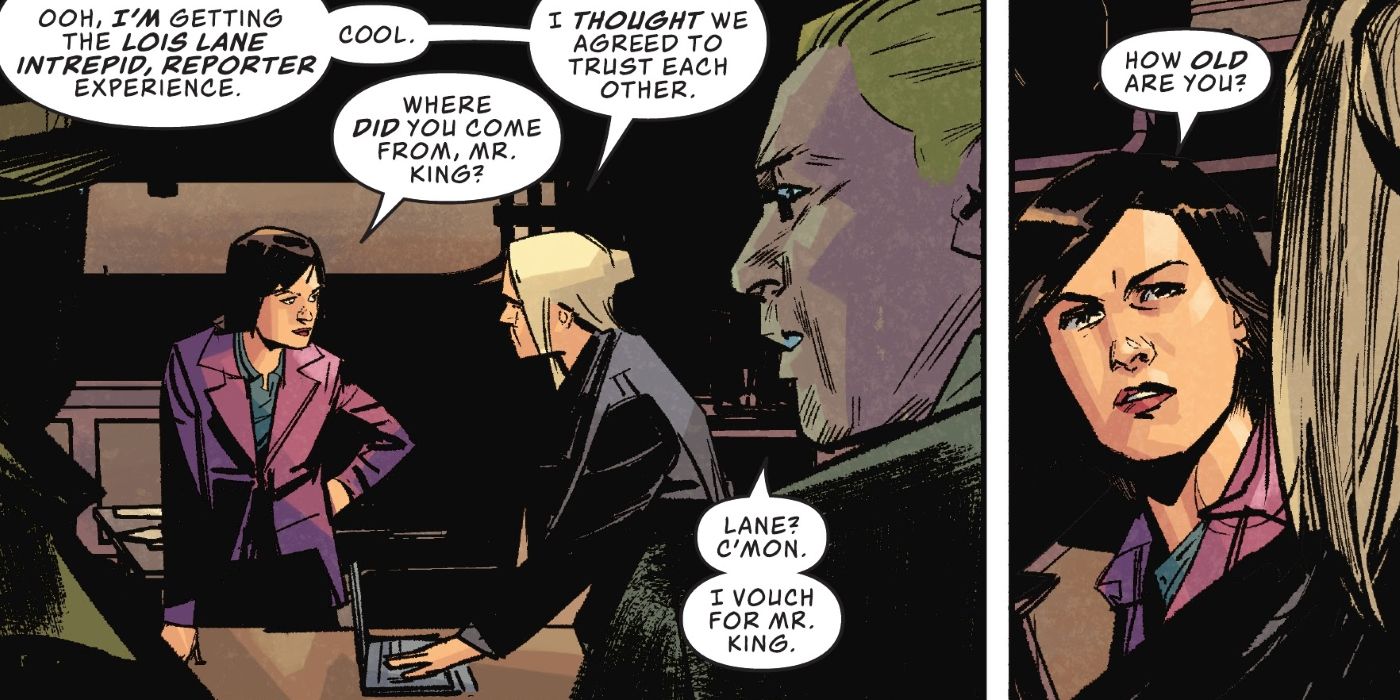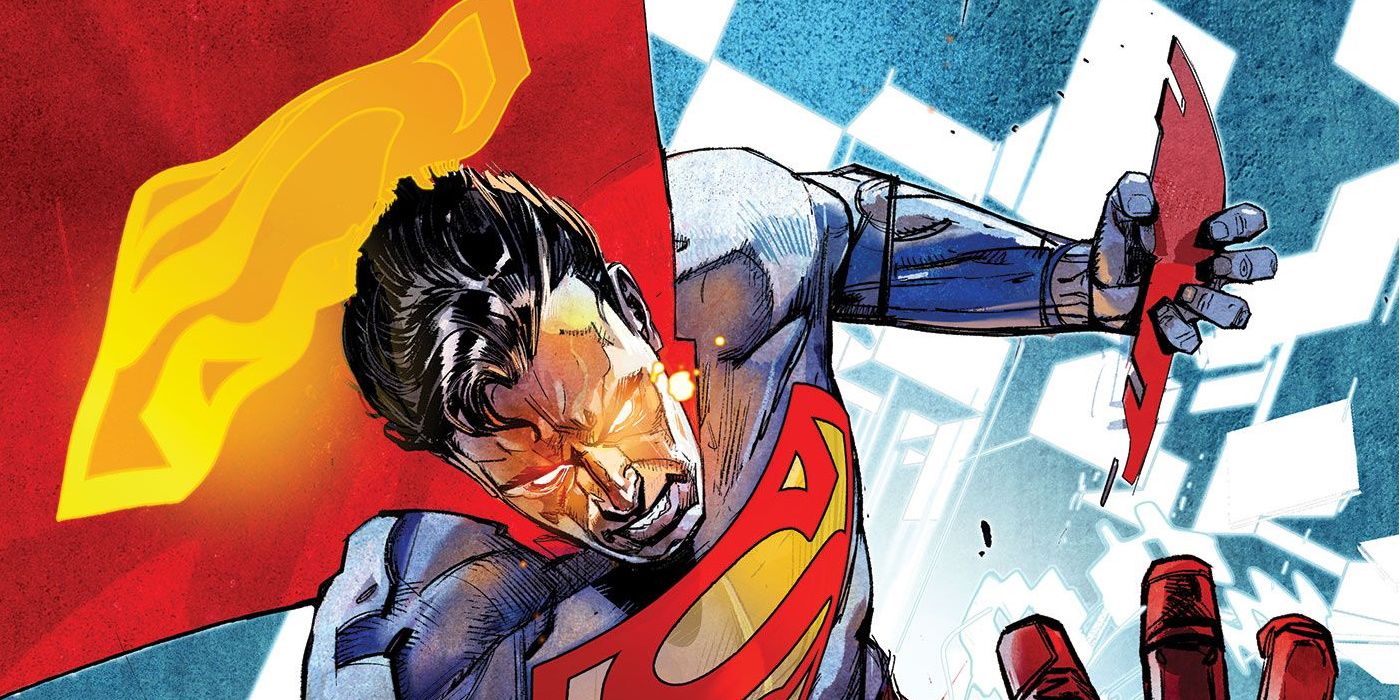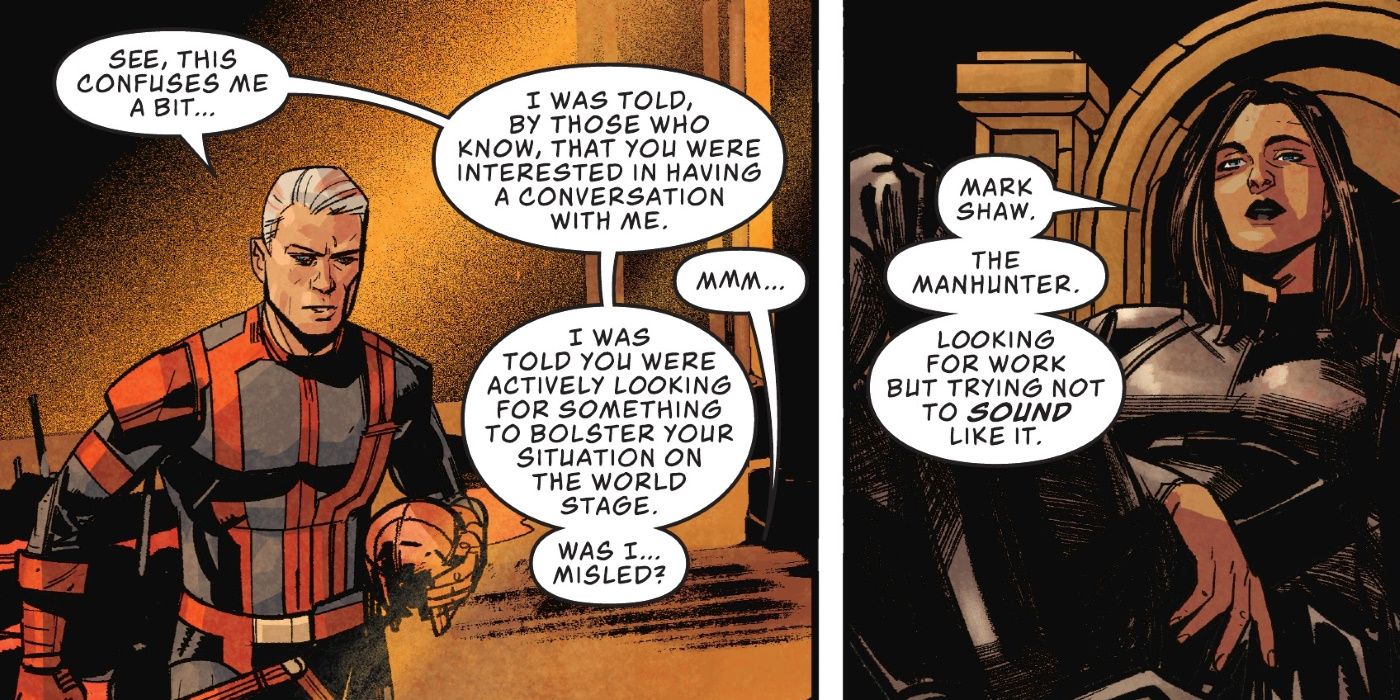The rise of Leviathan permanently changed the landscape of the DC Universe, erasing and consolidating the world's intelligence agencies into one top secret organization. Now the time has come for a new incarnation of Checkmate to return, as well... and the mysteries shaping the future of DC's world are only beginning.
Restoring a sense of balance to the clandestine shake-up caused by Mark Shaw a.k.a. Manhunter and his mighty Leviathan is no easy task, so it's onyl right that Lois Lane should be among those spearheading the new team. Screen Rant got the chance to speak with the mastermind behind this new mystery, and hear straight from Brian Michael Bendis just how this motley collection of spymasters are going to take back the world. For fans of Green Arrow, The Question, Talia al Ghul, Lois Lane, and the rest of their unlikely allies, the new Checkmate is a story that can't be missed.
Screen Rant: For those picking up this issue and wanting to get into this, what is the status of the DC world at this point? Considering how much time has passed since Event Leviathan reshaped things.
Brian Michael Bendis: We were able to use this time to reset the stage a little bit, and do a vague time jump. Mark Shaw has solidly landed a base, like a country that is his and full of people that believe in him. It is in direct conflict to what's going on in the rest of the DC Universe, and it is ethically very sketchy. There's some secrets behind what Mark is doing that the heroes know from experience is wrong.
That makes something like Checkmate necessary; a group of heroes and detectives that get together in the shadows - very Mission Impossible style, with a laptop in a chair - and try to figure out what's going on and what they can do to shut it down quickly. But in the meantime, Mark Shaw is a fierce and intelligent operator who also has a lot of experience with that, and it's going to take them a little bit of time.
But his weakness and his soft spot is spy work. Even though he shut it all down in Event Leviathan, it was only because he knew it was his weakness. By shutting it all down, what he really did was infuse it to the essential parts of the DC universe that are the best spies and are the best detectives. If anything, he put a huge target on his back by doing what he did, and that's what Checkmate #1 is about.
But on top of that, we have an excellent reveal about the life and story of Lois Lane. She's a big part of this, and a lot is going to be happening to her and around her in the pages of Checkmate, which I'm so excited for.
SR: That sounds like the time away works for the story. I've heard a few people wonder, and I've often thought myself, "Oh, yeah. What happened to Mark and Leviathan?" It seems like that's almost the point.
Brian Michael Bendis: Yeah, I've done this a couple of other times, and this one was like a gift that was handed to us. We were originally headed towards a different goal in editorial, and then DC went through some changes. But this work and the story we were telling was something we were very into. At the same time, I started taking over Justice League, and it gave us a really good anchor in which to reposition what Checkmate is and what it could be.
We have this connective thread with Oliver Queen. He's on both teams, and we're gonna find out he's paying for both teams. He's doing it altruistically; he's doing it for the right reasons. But there's issues that come with that, and that will be reflected in both books.
But yeah, we had this little downtime to reconfigure what we were doing. And it was such a gift, because it gives us that time that Mark Shaw would need to do what he's doing right. It just makes it a lot more logical. I've done this a couple of times before, where sometimes you do need a time jump to skip the boring part and get to the good stuff. Someone building the country isn't as interesting as, "Oh shit, the country is built."
Just on that basic level, I got very excited. And sometimes that's how it feels; you wake up one morning and something has changed. Something is different. And I wanted to reflect that in the work as well.
SR: It's almost now an origin story for this new team of Checkmate that has formed. Where does this particular group fit into that larger picture, in terms of their mandates or their first step for the beginning of this new book?
Brian Michael Bendis: A very good friend of mine, Greg Rucka, had spent most of the aughts crafting and building Checkmate into best parts of the DC Universe. Just Greg's work alone, and there's so many others, states the case for why Checkmate is such an essential part of the DC Universe. It's that extra flavor that you can't get anywhere else, and it's filled with characters that are going to do things other characters won't ever do.
Checkmate basically is the super spy organization of the DC Universe. There are people that you know and people that you may not have known yet, but it's like a mixture of all the different worlds coming together, specifically to take out things like Mark Shaw that are dancing between the raindrops and using the system on gaining on the system to further an agenda that will be destructive in the long run.
It's hard on Superman, when someone's doing that; when they're holding to the rules, but for a bad cause. And that's where someone like Checkmate has to come in figure out how to take him down the right way.
SR: Something that stood out so intensely from Event Leviathan was Mark Shaw's feelings towards Superman. Superman stood resolute in the face of it, but I felt like you gave Mark a compelling enough argument.
Brian Michael Bendis: I do love the antagonist with a damn good point. Magneto in his best ways is like that, where you can hear the logic even if I don't like how you're doing it. I don't like what you're doing, but I see what's motivating it, and it's arguable.
One of Mark Shaw's issues is that he believes that if you're fighting with Superman, then you are Lex Luthor. You are not right. He's more into convincing Superman that he's right. "If you could see that we're trying to build a better tomorrow; you want a better tomorrow, so stop looking at that and look at this." He wants to get Superman and Lois on his side more than he wants the losing battle of fighting Superman.
SR: Is there a more compelling motivation for a villain or any character than, "I believe that I can do it better?"
Brian Michael Bendis: Yeah, and it's an argument a lot of us have. There's things in the world that are broken; that are always broken in the real world and the DC world. You look at it and go, "I can fix this."
I was so grateful to a couple of fans on Twitter who have been chronicling Mark Shaw's legacy and his biography throughout all the different versions of the DC Universe. And people saw that, yes, he's always been this way. He's always been pushed to see what's wrong and how he can fix it. And here we are at almost like a flashpoint for him. I said a flashpoint, but not the Flashpoint. I've got to be careful.
SR: Is that part of why a character like Oliver Queen has risen to this point? In the pages of Checkmate here, he takes the stance of mistrust of Leviathan.
Brian Michael Bendis: Yes. He made it very clear he does not trust everyone in that room and, as the series continues, that will be part of the drama. They can't trust anybody outside of the room, and they can barely trust the people in the room.
SR: I have to ask about where Black Canary fits into that.
Brian Michael Bendis: I'm very happy to let you know that plays out in the pages of Justice League while this is going on. She is unaware of what he's doing until she becomes aware of it, and that happens in Justice League. And she's not thrilled. This is new territory for Oliver.
What we're going to discover soon - not to spoil - is that in the new DC Universe, Oliver's paying for everything in the Hall of Justice. He's accelerated to uber wealthy in the pages of other books, and that has caused him to look at what the money is for and why he has it. With other parts of the DC Universe in turmoil, some of which is based on Event Leviathan, he just picked up the check. Knowing also that Bruce Wayne can't right now, he said, "Good, this is something I can do."
And Checkmate is a much more cost-effective scenario for him, so he's doing both. You can see the logic of why he did this, and also Black Canary can see the logic of how it's been a blow up in his face. She literally says to him, "If you heard this about anybody else, wouldn't all of your dander be up?" You're a good person and your heart's in the right place, but if you heard this about anybody - including Bruce - you'd be like, "Whoa, whoa, whoa."
That's the scenario that Oliver has created for himself, and we'll see if she's right or if he's right.
SR: When you introduce a new version of Checkmate, people who know Checkmate will want to know: who is the King? This issue answers the question... but it also really doesn't, right?
Brian Michael Bendis: We're reintroducing the question of 'who is Mr. King,' and why are we trusting him? All the cards will be turned over in the course of the six issues.
SR: For people who read Leviathan wanting to know desperately who is under the mask, you have a twist on that with this Checkmate issue. You show so much of the hand in the first issue, but so much is still left a mystery.
Brian Michael Bendis: That was one of the blessings of the time away. I literally rearranged the whole entire scenes and issues; there are things in this first issue that originally were in issue #3. Some of that was based on how me and some of my peers sometimes argue about the arc of the first issue, and that a lot of times creators find out that their third issue is really their first issue. But it's too late, you're already on your third issue. Rearranging some of that for the betterment of the mystery was a lot of fun.
And also we have six mysteries, so to lay them all out in the first issue and answer a couple, but then go, "Yeah, we're so confident in what we have in the first issue, because we have so much more to come."
Alex Maleev has done some really wonderful work in this series, and every issue coming - issue #2 and #3 in particular have two of my favorite set pieces he's ever done. It sounds ridiculous, but every once a while someone does something that makes all the other artists go, "Oh, that's good. He's done it here." Like an artist's artist kind of stuff. I'm really excited for it to hit the stands.
SR: When you have the time to build a story like this for your artists, one that lends itself to literal and figurative shadow and conspiratorial energy, how does that affect the look and feel of a comic from a writer's perspective?
Brian Michael Bendis: [It affects] every part of it. Part of my philosophy of just doing this is that I write towards the artist, and nothing else. It's all in service of their talent, it's all in service of their strengths and their weaknesses. And sometimes that is leaning into the strengths, sometimes that's leaning into the weaknesses. It's like pushing your collaborators in directions as they are pushing me in certain directions.
We have a conversation, we talk about what we want to write and draw; where we want to put our energy. With Alex, it was about making sure that the cast was people he wanted to draw, and take it from there. We have a long history together, with some personal high watermarks, and it's just us trying to top that regardless of what other people think of the work. It's what we think of it. We were just coming off of something we were very proud of called Scarlet, and to go back to the superhero universe while applying some of the breakthroughs that he had in his artwork was a big reason for us to do this.
SR: Leviathan always had splash pages and title pages that felt like Alex Maleev, unmoored; just going for it. I was surprised at how much of this first issue felt like it was coming directly from that.
Brian Michael Bendis: We had this weird life where we were on Daredevil together, and DC called a couple of times to offer us Batman. And though we weren't in a position to do that at the time, it did itch us. Imagine you're 12 years old, and DC Comics calls up and says, "Go do Batman," and you go, "No?" There's no way; you can't shake it. I know this sounds very privileged, but it was like, "Ah, man, I want to do Batman."
So, when I said, "Hey, I'm gonna go to DC. Do you want to come?" He goes, "Batman?" I knew there was not only Batman, but a lot of things that he wanted to accomplish at DC that he wasn't able to accomplish when he was a younger creator. He had been at DC before we were on Daredevil together; he had done like Batman: No Man's Land, and some other surprising projects like Superman Vs Alien or Predator, I forget which one. And I know that he had elevated to one of the best artists in comics, so applying all that he learned to these new pages was one of the goals. Absolutely.
And I know that about him, so it's all about making sure that every one of these pages or set pieces was speaking to him directly. Again, there's a set piece coming up in issue #2 and in issue #3 that I felt like, "Oh, good. I did what I wanted to do. I created a space for him to just go bananas."
The tone that the writing and art is bringing is almost playful. I'm specifically thinking of the scene with Robin and Talia al Ghul. When I read this scene, I thought, "You could go anywhere with her. I have no idea who she's going to be when the story is over."
Brian Michael Bendis: I'm a big fan of this, and I've done it before. If a character is known for something, like she sits on the throne of Leviathan, let's take the throne away and see what does right.
This comes back from my earliest days as a crime fiction writer, where one of the rules is you take your character and throw them up against the wall. You shake them and see what they're gonna do. Are they gonna cower? Are they gonna fight back? Are they gonna talk their way out of it? What are they gonna do? It's the most genre way to reveal character, and this is a version of that. Mark took all her stuff away. What is she going to do?
Also, when you're in a shared universe, you get these little blessings like how Damian and Talia's relationship is super weird; it's super different than other people's. Writing that at any stage is great, but writing them in a situation they've never been before and they both know it, is a lot of fun. Damian doesn't know what his mom's gonna do, and Talia doesn't know what Damian's gonna do. That's a lot of fun.
But adding to the other part with the team, though there are trust issues and they're in a dangerous scenario - they respect each other. They're all excellent at their jobs, they're very smart and very good, and they all have earned their place at the table. Writing that as the base is always a lot of fun. Showing that respect through almost a camaraderie of how they're speaking to each other, or, "I don't trust you, and I'm just going to tell you and see what you do with it." That kind of stuff is a lot of fun to write.
While they're talking and being cheeky with each other, they're all looking for holes in the stories. They're not playing each other, but everyone's on alert because there is a there is a trust issue going on.
You're making me realize I was reading the book while throwing sideways glances at everybody else. I guess I have you to thank for doing that to us with Leviathan.
Brian Michael Bendis: Thank you. And again, I know that for some, it can be frustrating to read the book. You just want to know who are the heroes, who are the villain? Let's start the hitting.
I'm all about that, but my favorite thing about comics is that there's space for all these ways to interact with the characters that are different. I get to do that right now by writing Checkmate and JLA at the same time, and it really feels like you're doing the same story from wildly different perspectives. To the point where the audience wouldn't even see the same story, other than Oliver.
But it's so much fun to craft. It feels almost like a Jenga tower, like one piece too many or one piece too little doesn't work.
SR: You've also ended with the massive question of who, or what, is Daemon Rose.
Brian Michael Bendis: Yes. We're gonna find that out, and it is directly connected to Lois and Sam Lane. And I must say Superman shows up in almost every issue of this, as things get more and more tense. Mark's handling of Superman kind of reveals why checkmate is necessary. Instead of just telling it, we're showing you in flashback and in in modern time why Superman's hands might be a little tied.
Checkmate #1 is available now wherever comic books are physically or digitally sold, with Issue #2 arriving July 27th, 2021.

